Related Research Articles
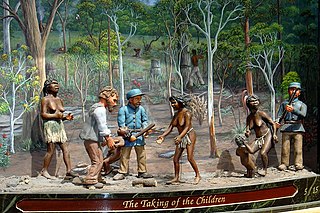
The Stolen Generations were the children of Australian Aboriginal and Torres Strait Islander descent who were removed from their families by the Australian federal and state government agencies and church missions, under acts of their respective parliaments. The removals of those referred to as "half-caste" children were conducted in the period between approximately 1905 and 1967, although in some places mixed-race children were still being taken into the 1970s.
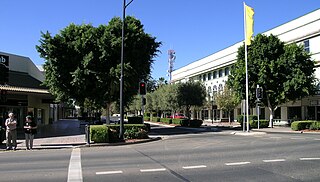
Moree is a town in Moree Plains Shire in northern New South Wales, Australia. It is located on the banks of the Mehi River, in the centre of the rich black-soil plains. Newell and Gwydir highways intersect at the town. It can also be reached from Sydney by daily train and air services.
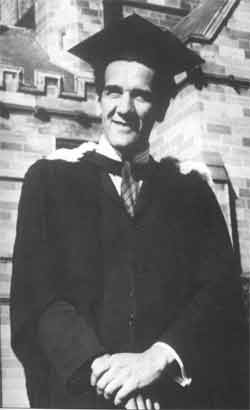
Charles Nelson Perkins, usually known as Charlie Perkins, was an Aboriginal Australian activist, soccer player and administrator. It is claimed he was the first known Indigenous Australian man to graduate tertiary education. He is known for his instigation and organisation of the 1965 Freedom Ride and his key role in advocating for a "yes" vote in the 1967 Aboriginals referendum. He had a long career as a public servant.
Aboriginal Protection Board, also known as Aborigines Protection Board, Board for the Protection of Aborigines, Aborigines Welfare Board, and similar names, refers to a number of historical Australian state-run institutions with the function of regulating the lives of Aboriginal Australians. They were also responsible for administering the various half-caste acts where these existed and had a key role in the Stolen Generations. The boards had nearly ultimate control over Aboriginal people's lives.
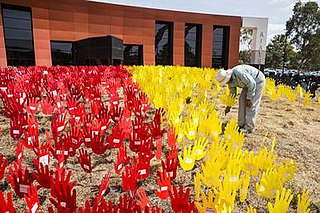
The Australian Institute of Aboriginal and Torres Strait Islander Studies (AIATSIS), established as the Australian Institute of Aboriginal Studies (AIAS) in 1964, is an independent Australian Government statutory authority. It is a collecting, publishing, and research institute and is considered to be Australia's premier resource for information about the cultures and societies of Aboriginal and Torres Strait Islander peoples.

The Freedom Ride of 1965 was a journey undertaken by a group of Aboriginal Australians in a bus across New South Wales, led by Charles Perkins. Its aim was to bring to the attention of the public the extent of racial discrimination in Australia, and it was a significant event in the history of civil rights for Indigenous Australians.
The Australian colonies and in the nineteenth century created offices involved in dealing with indigenous people in the jurisdictions.

The Koori Mail is an Australian newspaper written and owned by Indigenous Australians since 1991. It is published fortnightly in printed form and electronic copies are available. Owned by five community-based Aboriginal organisations based in Lismore, in northern New South Wales, its profits are spent on community projects and needs. "Koori" is a demonym for the Aboriginal peoples of parts of New South Wales and Victoria.

Toomelah is an Aboriginal Australian community in the far north of inland New South Wales, Australia.
Aboriginal Affairs NSW (AANSW) is an agency of the Premier's Department in the Government of New South Wales. Aboriginal Affairs NSW is responsible for administering legislation in relation to the NSW Government policies that support Indigenous Australians in New South Wales, and for advising the Minister for Aboriginal Affairs and Treaty, David Harris.
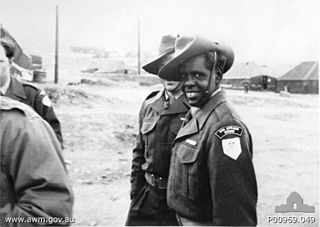
Steve Dodd was an Aboriginal Australian actor, notable for playing Aboriginal characters across seven decades of Australian film. After beginning his working life as a stockman and rodeo rider, Dodd was given his first film roles by prominent Australian actor Chips Rafferty. His career was interrupted by six years in the Australian Army during the Korean War, and limited by typecasting.
An Aboriginal reserve, also called simply reserve, was a government-sanctioned settlement for Aboriginal Australians, created under various state and federal legislation. Along with missions and other institutions, they were used from the 19th century to the 1960s to keep Aboriginal people separate from the white Australian population. The governments passed laws related to such reserves that gave them much power over all aspects of Aboriginal people’s lives.

The Redfern All Blacks, also known as RABs or Redfern, are an Indigenous Australian semi-professional rugby league club based in Redfern, New South Wales, They are a part of the South Sydney District Junior Rugby Football League.

Moree Baths and Swimming Pool is a heritage-listed swimming pool at Anne Street, Moree, New South Wales, Australia. It was the site of one of the successful protests by Aboriginal Australians for their rights during the Freedom Ride in February 1965. The site was added to the Australian National Heritage List on 6 September 2013.

The Aborigines Act 1969 was an Act of the Parliament of New South Wales that repealed the Aborigines Protection Act 1909, and alongside other regulations relating to Aboriginals in New South Wales.
Australian Indigenous Ministries, formerly Aborigines Inland Mission of Australia, is an interdenominational Christian organisation that provides ministries to Aboriginal Australians. Aborigines Inland Mission of Australia was established in 1905, and ran many Aboriginal missions across Australia, including the Retta Dixon Home in Darwin, Northern Territory, St Clair Mission in Singleton, New South Wales.
The Aboriginal-Australian Fellowship (AAF) was a Sydney-based organisation focused on changing the New South Wales Aborigines Protection Board, the wider issues of wage parity and full citizenship for Aboriginal Australians.
The Aboriginal Publications Foundation (APF) was a national Australian Aboriginal organisation that existed from 1970 to 1982, based first in Sydney, New South Wales, and later in Perth, Western Australia. It existed to promote and fund creative arts projects by Aboriginal people, especially written works. It published a national quarterly magazine called Identity (1971–1982), which carried articles by many prominent Aboriginal rights activists.
Lyall Munro Snr, also known as Uncle Lyall Munro Senior, was an Aboriginal Australian activist, leader, and elder, especially known for his advocacy of Indigenous land rights. He was the husband of Carmine "Maggie" Munro, and father of Lyall Munro Jnr.
Lyall Thomas Munro Jnr is an Aboriginal Australian elder, a former activist and member of many organisations serving Aboriginal Australians. He is known as a local leader in the town of Moree, New South Wales. he is the son of Lyall Munro Snr, and the husband of Jenny Munro.
References
- ↑ "Dawn". Australian Institute of Aboriginal and Torres Strait Islander Studies . 23 November 2020. Retrieved 19 April 2021.
- ↑ "Dawn : a magazine for the Aboriginal people of N.S.W". National Library of Australia . Retrieved 19 April 2021.
- ↑ "Dawn". Trove . Retrieved 19 April 2021.
- ↑ "The Role of the Aborigines Welfare Board in Aboriginal Progress". Dawn. Sydney: Aboriginal Welfare Board. April 1969. p. 1.
- 1 2 "The early history of Moree and adjacent districts". North West Champion . Vol. 42, no. 62. New South Wales, Australia. 6 August 1953. p. 7. Retrieved 22 November 2022– via National Library of Australia.
- ↑ "Aborigines Welfare Board". Research Data Australia. Retrieved 22 November 2022.
- ↑ "From Board to Department : The Changeover". New Dawn. Sydney: New South Wales Department of Child Welfare and Social Welfare. April 1969. p. 2.
- ↑ "INFOKOORI". SLNSW . Retrieved 30 September 2022.
- ↑ "Dawn". AIATSIS . Retrieved 30 September 2022.
- ↑ "New Dawn". AIATSIS . Retrieved 30 September 2022.